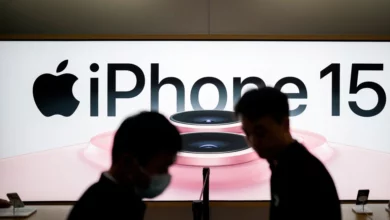
Uber, the most valuable startup to emerge from Silicon Valley in recent years, is facing mounting calls to go public.
Uber Technologies Chief Executive Travis Kalanick said about 30 percent of the ride-hailing company's trips now take place in China, underlining how important the world's second-biggest economy is to Uber's global growth ambitions.
Speaking on Tuesday at a tech conference hosted by the Wall Street Journal in Laguna Beach, Calif., Kalanick said Uber's market share in China has climbed since the start of 2015 and now stands at about 30 percent to 35 percent.
He said Uber, reported in July to be valued at nearly US$51 billion, now does almost as much business in China as in the United States.
Although Uber faces stiff competition from Chinese market leader Didi Kuaidi, a firm valued at US$16 billion and backed by Chinese Internet giants Alibaba Group Holding Ltd and Tencent Holdings Ltd, Kalanick said he relishes the challenge. Uber recently closed a US$1.2 billion deal to enter 100 more Chinese cities in the next 12 months.
"We're still number two, so we still have a long way to go," he said. "There are a lot of things we don't know about China, but what an interesting problem to solve."
Uber's chief rival in the US market, Lyft, struck a deal with Didi Kuaidi earlier this year that allows each company to serve the other's customers. Didi Kuaidi invested US$100 million in Lyft as part of the partnership, a move that puzzled the Uber CEO.
"I don't understand what the upside is for Didi," Kalanick said.
Despite concerns among many American executives about Chinese regulators' preference for native firms, Kalanick said he feels his company has enjoyed a level playing field. "We have not seen a single instance where we have been treated differently than our competition," he said.
Uber, the most valuable startup to emerge from Silicon Valley in recent years, is facing mounting calls to go public. But Kalanick urged investors to give the company time to take that step, saying the company is only about five years old, younger than most firms are when they go public.
"We're maturing as a company, but we're like eighth graders," he said. "It's just a little early – give us a few years."




